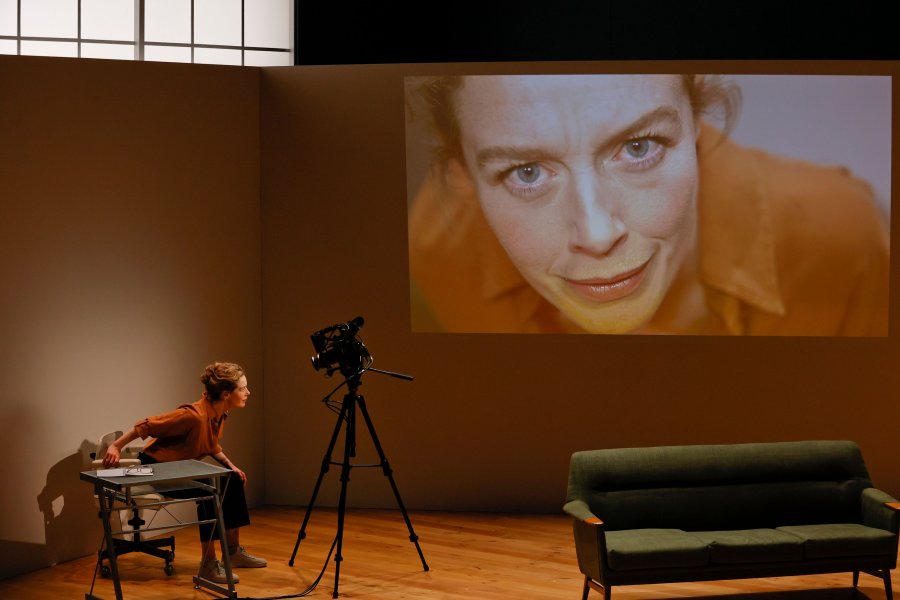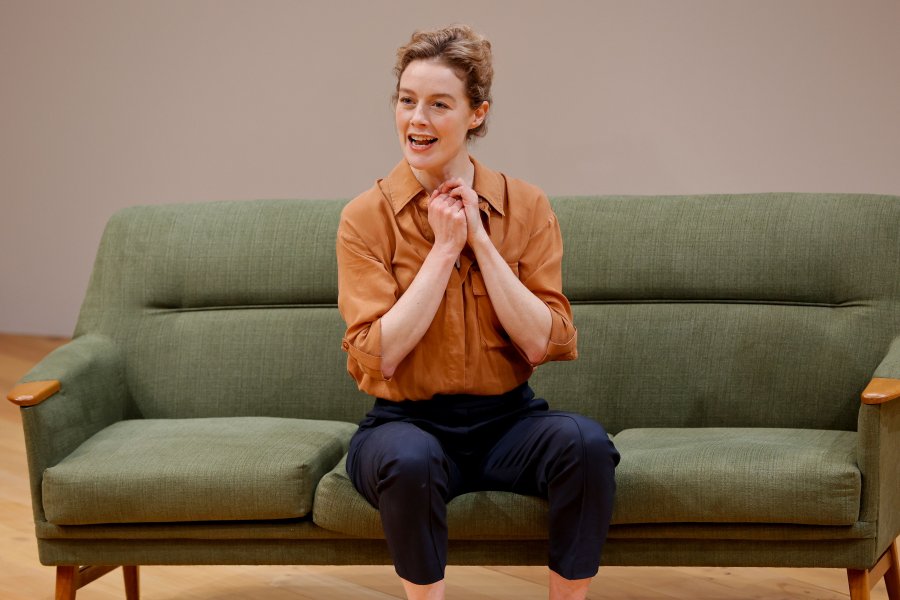By Darby Turnbull
MTC’s Girls and Boys by Dennis Kelly, may by chance of program timing be the best Halloween show on the Melbourne stage. This week, as part of my seasonal read of classical horror fused novels I revisited Ira Levins’ Rosemary’s Baby and Stepford Wives; another set of texts written by men exploring the unique horror of gender disparity in a cultural moment when we’re supposed to be emancipated from it. What is lurking between the supportive partner who shares parenting duties? supports his wife/girlfriends career advancement? Perhaps he believes it until he finds his limit and enacts revenge in exchange for his own emasculation.
Kelly finds himself in an interesting dramaturgical position, he seems keenly aware of what he doesn’t want to do; he doesn’t build up a brilliant, funny, charismatic woman only to punish her for everything we like her for (check) so she’s in complete control of the narrative, he doesn’t want to fetishize pain and tragedy for schlocky drama so he incorporates a trigger warning into the script in addition to the resources provided in the foyer for affected patrons and he presents the tragedy with reverence but with some clinical remove; statistics are sited, thesis are proposed and there’s even a glimmer of hope. Sometimes it feels like he’s so keen not to be part of the problem it keeps the play contained when he could further subvert or explore the themes that he’s already achieved with wry dramatic irony and a character who’s self-possessed, compassionate without self-pity (god knows she deserves it though) and through it all has retained her bolshie, caustic wit and genuine fascination with society and it’s function that befits her vocation as a producer of documentary’s.
The original incarnation with Carey Mulligan and directed by Lynsey Turner has been preserved as an audio drama so I came in with a familiarity with the play and its ‘twist’ so this time I could marvel in just how cunningly the text is constructed and the rhythm of the dialogue. This is the kind of play you hand to a performer and director to work magic out of some of its less seamless moments. In this production we have the spellbinding Nikki Shiels under maestro director Kate Champion.
Whilst Eryn Jean Norvill was getting the (deservedly) rockstar reception in The Picture of Dorian Grey I quite unexpectedly had the opportunity to see Nikki Shiels take on the performance which I imagine is like having Glenda Jackson stand in for Julie Christie, and now Shiels is following it with another breathtaking exhibition of solo performance (the brilliant Emily Goddard is Shiels’ cover for this production so audience need not worry about being short changed if she’s off).

She’s mesmerising, for the nearly two hour run time there’s almost nothing to divert your attention away from her presence. Whilst she does switch between characters and ages, sometimes with the aid of live video projections onto the set (Designed by Romanie Harper, who achieves a stunning coup in the closing moments of the show, that took my breath away) she is allowed much more grounded fluidity to mine the psychology of this one woman and her testimony. She makes hilarious work of Dennis Kelly’s filthily witty bon mots, being working class she’s risen by sheer force of personality and skill, she has a highly refined charm offensive that certainly holds her in good stead when she needs to own the room, especially in a male dominated industry and it’s integral to keeping her standing in retrospect. During her frequent diversions that show her administering to her children she uncannily evokes their presence even as she later reveals (I know they’re not here). You can even see the weight of them in her arms or the feel of their touch (Steph Kehoe is credited as mime consultant) but it’s in her eyes; the delight she takes in them, her frustration, her doubts and the fierceness of her love. It’s in these moments that Kelly’s writing shines as he allows his character to interrogate her parenting and personality critically and deliberately not sparing her own limitations.
Kate Champion is masterful in the seeming sparsity of her direction, she doesn’t distract you, her choices contain multitudes; Marg Horwell’s few set pieces all evoke a history with each piece of furniture and prop gaining new meaning as the play progresses both in what is used and what isn’t. Amelia Lever-Davidson’s lighting uses different shades of warm tones and beautifully conveys shifts in memory and interiority; it’s an absolute testament to the creative team that sparseness doesn’t have to equal stark. It’s like they’re working with each other to protect their heroine through her grief induced self-examination.
At the end of last night’s performance, the audience rose to their feet as if being pulled by invisible wire in our collective gratitude and awe for the gift that’s currently being bestowed at Fairfax Studio.
Images: Jeff Busby





